Filter by:
News
Stay informed of all the latest developments in the field of water and subsurface.

Five questions about the impact of floods on the financial sector
Extreme water levels are increasingly common in our country. What are the effects of flood risks on the financial sector? Deltares investigated this together with De Nederlandse Bank (DNB).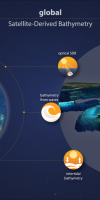
Working together to strengthen coastal resilience
Coastal areas are vital ecosystems that are home to 40 percent of the world's population and host biodiversity hotspots crucial for carbon sequestration. Despite their great importance, a comprehensive understanding of these areas was lacking until recently.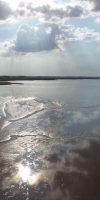
Dynamics muddy coasts mapped for the first time
Where muddy beaches are located and how they change has been visualised for the first time worldwide using satellite imagery, machine learning and various coastal datasets. This shows that three quarters of the world's muddy coasts have changed significantly since 1988.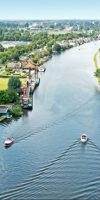
Future discharges in the Rhine and Meuse: lower in summer and higher in winter
Deltares, Rijkswaterstaat and the KNMI have been working together for the Ministry of Infrastructure and Water Management to formulate the insights from the latest climate scenarios in terms of the implications for the discharge regime of the Rhine and Meuse rivers. The analysis shows that the mean winter and spring discharges will rise in both rivers.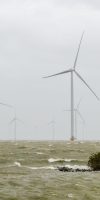
Smarter use of space at nature-inclusive wind farms North Sea
In our energy transition, the North Sea plays a major role. The space required for offshore wind farms is huge, affecting the ecosystem and all other activities that take place at sea. How can offshore wind farms be designed and used in such a way that they also function as food and energy hubs and contribute to the restoration of biodiversity? This was investigated in the Joint Industry Project TKI Road2SID, coordinated by Deltares.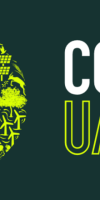
Deltares at COP28: Water as a dealmaker
As world leaders, NGOs, and the climate community gather together in Dubai for COP28, the stakes have never been higher. Climate action is urgently needed to keep the Paris Agreement goals within reach. On 10 December, COP28 will focus on the importance of water. At Deltares, we are convinced that water can play an essential role, and call on the climate community and water sector to work together.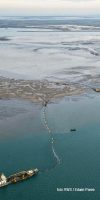
How can we effectively tackle sand starvation in the Eastern Scheldt?
This is an important question because, in addition to the negative effect on nature, sand starvation in the Eastern Scheldt and in similar systems worldwide can also result in safety problems for the hinterland in the long term.
JCAR ATRACE programme officially kicks off
JCAR ATRACE, a joint cooperation programme facilitating scientific applied research on flood and drought risk management in regional river basins, was officially launched during the Benelux Water Day on 29 November.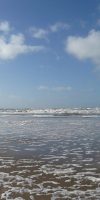
Sea level on Dutch coast rose further in 2022
Today Deltares presented the annual calculation of the sea level on the Dutch coast. The last, more comprehensive, four-yearly, report noted for the first time, in addition to the worldwide observation, an acceleration in sea level rise along the Dutch coast. That conclusion has been confirmed now that the data for 2022 have been added. The sea level data on the Dutch coast can, as concluded last year, best be described by a trend of 1.8 mm/year until thirty years ago, and an increase in the average annual rise to 2.9 mm/year thereafter.
Mandy Korff appointed as top expert of the Netherlands Academy of Engineering
It was announced this month that the Netherlands Academy of Engineering (NAE) is emphasizing the importance of technological innovation with the appointment of 62 fellows / members. One of the fellows is Mandy Korff, an expert at Deltares on foundation engineering.-
Strategic research activity plan 2024 published
Deltares has published the Activity Plan Mission-driven research 2024. It outlines the main lines of the Strategic Research that Deltares will carry out in 2024. 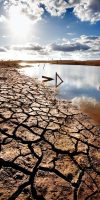
WaterLOUPE expanded to Lima, Johannesburg, and Chennai
The WaterLOUPE dashboard, developed by Deltares and supported by Kimberly-Clark, the global consumer packaged goods manufacturer, maps local water scarcity challenges faced by different types of water users in various metropolitan regions, based on current and various future scenarios. Following successful applications around the world, it has expanded to Lima, Peru, Johannesburg, South Africa and Chennai, India.
